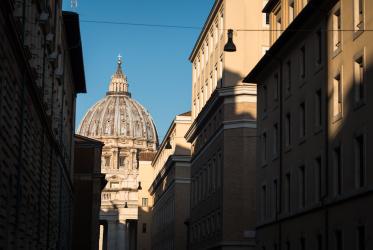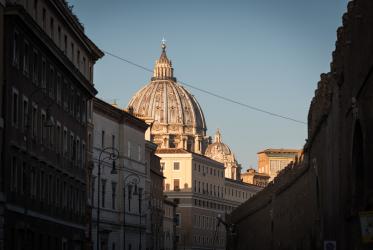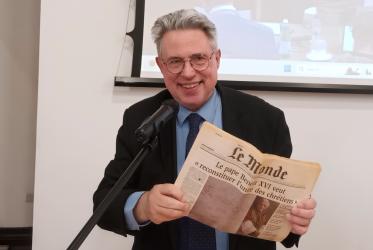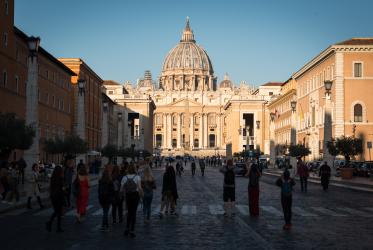The first part of the meeting was dedicated to sharing on important recent developments in the life of the two institutions. Bishop Brian Farrell, Secretary of the Pontifical Council for Promoting Christian Unity (PCPCU), focused on the recent meeting in Rome called “Faith and Science: Towards COP26”. Many international scholars and Christian leaders including the Pope, as well as representatives of other religions, met to draw international attention to the climate crisis and the need to promote a sustainable culture of life. He then spoke of the meeting held in the Vatican on “Religions and Education: Towards a Global Compact on Education.” The representatives of different churches and religions of the world dialogued together with Pope Francis about the main educational challenges and invited the institutions of the world to put education at the very centre of the international agenda. He also introduced the participants to the Synodal path, a two-year process that was inaugurated last Sunday by the Holy Father in order to invigorate the Church’s life under the three key-words of communion, participation and mission.
Reverend Professor Dr Odair Pedroso Mateus, Interim Deputy Secretary General of the WCC, highlighted some important aspects of the current life of the Council. One of them was a recent consultation on the teaching of ecumenism in the context of the global Church today marked by Pentecostal and evangelical movements, in particular in the southern hemisphere. As the WCC community continues to prepare for the next Assembly in September 2022 in Karlsruhe, Germany, on the theme “Christ's love moves the world to reconciliation and unity”, some important decisions regarding its size and format will be taken in November during the next Executive Committee meeting. He then updated the participants on the work of the Faith and Order Commission that has been harvesting the results of the work of the current mandate approaching its term by publishing studies on ecclesiology and moral discernment in the churches. He also spoke about the series of webinars dedicated to ecclesiology, ethics and bilateral dialogues.
The second part of the meeting was dedicated to discussing what still needs to be done regarding the three documents which are in the final phase of preparation, the final Report from the current mandate, and the two studies with recommendations to the churches on “Peacebuilding in Situations of Conflict” and “Migrants and Refugees – Ecumenical Challenges and Opportunities”. For this part of the meeting the group was joined by Ms Lyn van Rooyen, the coordinator editor for the WCC Publications, who introduced the participants to the technical process of editing, publishing and launching documents in the digital era. It was agreed that only a limited number of printed copies is needed while the internet will be used as a main channel for distribution and diffusion of the documents in digital format. The next Executive will be held in-person on 4-5 November 2021 in Bossey, Switzerland, to discuss the work still to be undertaken by the JWG before the end of its mandate. The meeting concluded with a time of prayer led by Metropolitan Nifon.





